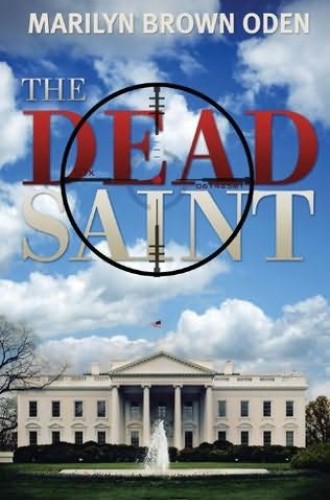The Dead Saint, by Marilyn Brown Oden
The Dead Saint is a big Ludlumesque, Dan Brown-ish terror novel saturated with a pronounced, take-sides morality. The saint in this story is not, as one might suspect because the book is published by Abingdon, a saint in the usual sense of the word, but a member of the formidable New Orleans Saints football team. He is killed not because he toyed with the affections of another's wife or ruined some gambling syndicate's point spread, but because he is a member of a secret organization dedicated to saving the world from people like the Patriot, the nickname of a man who is close to the president of the United States and who turns out to be the half-brother of the Saint himself.
So the kernel of the novel is the ancient Cain and Abel story, the mythic relationship between brothers, and the reminder that a deep-seated enmity is at work in the world and will be there, festering and dividing humanity, until the end of time.
The central figure in the story is a United Methodist bishop named Lynn Peterson, who becomes involved in unraveling the complicated intertwining of personalities and events because she is trusted by the president, who is also a woman. Her activities as a traveling bishop make her a perfect courier for the president and, as it turns out, a more formidable opponent of the duplicitous Patriot than most people would have suspected her of being.





